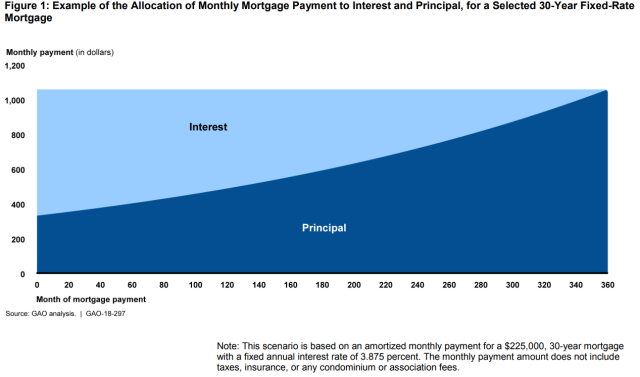A Detailed Guide to Equity Release Mortgages in the UK
A Detailed Guide to Equity Release Mortgages in the UK
Blog Article
Discovering the Different Kinds Of Equity Release Mortgages Available Today
Equity Release mortgages present numerous alternatives for home owners aged 55 and over. equity release mortgages. These monetary items cater to various demands and preferences, permitting individuals to accessibility funds from their residential property. From life time home loans to common appreciation home loans, each type uses unique advantages. Comprehending these choices is essential for making educated decisions. What aspects should one think about when choosing the most ideal equity Release strategy? The information that adhere to may clarify this vital topic
Comprehending Equity Release Mortgages
Equity Release home loans provide house owners, normally those aged 55 and over, with a method to access the worth bound in their building without requiring to sell it. This monetary choice enables individuals to convert a section of their home equity right into cash, which can be made use of for various functions, such as home renovations, settling debts, or funding retirement.Equity Release can take different kinds, yet it fundamentally involves borrowing against the value of the home while maintaining ownership. Home owners can choose to receive a lump sum or a series of smaller settlements, depending on their financial needs and preferences.Additionally, the amount readily available for Release is influenced by the home's worth, the house owner's age, and certain lending institution criteria. On the whole, recognizing equity Release home mortgages is vital for house owners to make educated choices about using their home's equity while thinking about the long-term implications.
Lifetime Mortgages
Lifetime home mortgages stand for among one of the most preferred types of equity Release. This economic item allows homeowners, normally aged 55 or older, to borrow versus the value of their building while keeping possession. The financing, which is safeguarded versus the home, accumulates rate of interest with time but does not need regular monthly repayments. Instead, the loan and accrued passion are paid off when the house owner passes away or moves right into long-lasting care.Lifetime home mortgages use versatility, as customers can pick to get a swelling sum or choose a drawdown facility, accessing funds as required. Notably, numerous plans featured a no-negative-equity guarantee, making certain that debtors will never owe greater than the value of their home. This attribute supplies assurance, allowing people to appreciate their retirement without the concern of diminishing their estate. On the whole, life time home mortgages act as a practical option for those looking for monetary support in later life.
Home Reversion Plans

Drawdown Lifetime Mortgages
While lots of home owners look for ways to access their riches, drawdown life time mortgages present a versatile choice that permits people to Release funds progressively. This kind of equity Release home loan makes it possible for home owners to borrow versus the worth of their property while maintaining ownership. Unlike typical lifetime home mortgages, drawdown plans permit customers to access a section of their equity upfront and withdraw added funds as required, approximately a predetermined limit.This attribute can be specifically helpful for those who desire to manage their financial resources carefully, as it lessens interest build-up by just charging rate of interest on the quantities drawn. In addition, drawdown life time home loans frequently come with a "no negative equity assurance," ensuring that customers will certainly never ever owe greater than their home's worth. This choice fits retirees that want economic safety and adaptability, allowing them to meet unanticipated expenditures or keep their way of life without having to sell their residential property.
Boosted Life Time Mortgages
Improved Lifetime Home mortgages provide distinct benefits for qualified homeowners looking for to Release equity from their buildings. Comprehending the eligibility standards is necessary, as it identifies that can gain from these specialized finances. It is likewise important to evaluate the possible drawbacks linked with enhanced alternatives, making sure an all-round perspective on their use.
Qualification Requirements Described
Recognizing the eligibility requirements for Improved Lifetime Mortgages is crucial for possible candidates seeking to access the equity in their homes. Generally, applicants must be aged 55 or older, as this age need is conventional in the equity Release market. Homeowners ought to have a residential or commercial property valued at a minimum threshold, which can vary by lending institution. Importantly, the home needs to be their main home and in good problem. Lenders frequently examine the homeowner's wellness standing, as particular health conditions might improve qualification and benefits. Additionally, candidates ought to not have existing substantial financial obligations protected versus the building. Satisfying these requirements allows individuals to explore Enhanced Lifetime Home mortgages as a sensible choice for accessing funds linked up in their homes.
Advantages of Improved Home Mortgages
After clearing up the eligibility standards, it becomes apparent that Enhanced Lifetime Home mortgages provide a number of substantial benefits for home owners aiming to utilize their property equity. Primarily, they offer access to a bigger financing quantity contrasted to standard lifetime home loans, profiting those with wellness problems or age-related aspects that increase their life span danger. This enhanced loaning capability enables home owners to satisfy different economic demands, such as home enhancements or Recommended Site retirement expenses. Furthermore, these home mortgages generally feature versatile payment choices, enabling borrowers to manage their finances better. The no-negative-equity warranty even more assures that home owners will certainly never owe greater than their building's value, providing comfort. In General, Enhanced Life time Home loans provide an engaging choice for qualified home owners looking for economic options.
Prospective Disadvantages Taken Into Consideration
While Improved Lifetime Mortgages offer numerous advantages, prospective downsides require careful factor to consider. One significant problem is the effect on inheritance; the equity released minimizes the value of the estate left to recipients. Additionally, these home loans can accumulate significant passion in time, bring about a considerable financial obligation that might go beyond the initial lending quantity. There may also be restrictions on home alterations or rental, restricting homeowners' flexibility. Improved products usually need specific health and wellness problems, implying not all property owners will certify. Lastly, taking care of the fees and charges linked with these home mortgages can be intricate, possibly causing unforeseen expenses. As a result, individuals should thoroughly analyze their situation and seek advice from monetary consultants before proceeding.
Shared Appreciation Mortgages
Shared Appreciation Mortgages stand for a special financial setup that allows property owners to accessibility equity while sharing future residential or commercial property value boosts with the lending institution. This approach provides prospective advantages such as decreased month-to-month repayments, but it also features drawbacks that should be thoroughly thought about. Comprehending the eligibility demands is essential for those thinking about this option.
Concept Summary
Equity Release home mortgages, especially in the type of shared recognition mortgages, offer homeowners an unique financial remedy that permits them to accessibility funds by leveraging the worth of their residential property. In this setup, a loan provider supplies a financing to the house owner, which is commonly settled via a share of the building's future recognition in worth. This indicates that when the property owner markets the building or dies, the loan provider gets a portion of the raised worth, as opposed to just the initial car loan amount. Shared gratitude home loans can be appealing for those looking to supplement their revenue or financing significant costs while preserving ownership of their home. Nonetheless, the monetary implications of shared appreciation have to be very carefully taken into consideration by potential borrowers.
Downsides and advantages
Shared admiration home loans can give significant financial benefits, they also come with significant downsides that potential customers should take into consideration. These home loans enable house owners to accessibility equity in their residential properties while sharing a part of any future gratitude with the lender. This arrangement can be valuable during times of climbing home values, using considerable funds without monthly settlements. Nevertheless, the main downside is the possible loss of equity; property owners may finish up with substantially minimized inheritance for successors. In addition, the intricacy of the terms can lead to misunderstandings regarding repayment responsibilities and the percentage of admiration owed. It is crucial for consumers to consider these aspects thoroughly prior to devoting to a shared gratitude home mortgage.

Eligibility Requirements
What standards must house owners meet to receive a shared gratitude home loan? Largely, candidates should go to the very least 55 years of ages, assuring they are within the target demographic for equity Release products. Additionally, the property must be their primary home and commonly valued over a defined minimum limit, commonly around ? 100,000. Lenders also assess the homeowner's monetary circumstances, including revenue and outstanding financial debts, to determine they can manage the mortgage properly. Notably, the building needs to be in excellent problem and without significant lawful encumbrances. Home owners need to additionally have a clear understanding of the terms, consisting of how gratitude will certainly be shown to the loan provider upon sale or transfer of the residential property, as this impacts total returns.
Choosing the Right Equity Release Option

Regularly Asked Inquiries
What Age Do I Need to Be for Equity Release?
The age navigate to these guys requirement for equity Release usually begins at 55 for a lot of plans. However, some suppliers may provide options for those aged 60 and above, reflecting varying terms based on private conditions and loan provider plans.
Will Equity Release Influence My Inheritance?
Equity Release can impact inheritance, as the amount obtained plus rate of interest lowers the estate's worth. Successors might get less than prepared for, depending upon the home's gratitude and the total debt at check here the time of passing.
Can I Move Residence With Equity Release?
The question of moving home with equity Release emerges often. Generally, people can transfer their equity Release plan to a new residential or commercial property, but certain terms might apply, calling for appointment with the lending institution for guidance.
Exist Fees Related To Equity Release Mortgages?
Charges related to equity Release home loans can include arrangement costs, evaluation charges, and lawful prices. In addition, there might be very early repayment fees, which can impact the overall price and financial implications for the borrower.
Exactly How Does Equity Release Impact My Tax Situation?
Equity Release can impact one's tax obligation circumstance by potentially increasing taxable earnings, as launched funds are considered funding. Nonetheless, it typically does not incur instant tax obligation responsibilities, making it vital to get in touch with a financial advisor for customized advice.
Conclusion
In summary, the range of equity Release home mortgages readily available today supplies homeowners aged 55 and over several pathways to access their building's worth - equity release mortgages. Whether choosing for a life time home loan, home reversion plan, or other choices, each alternative offers distinctive advantages customized to private monetary demands. Mindful factor to consider and consultation with an economic expert are crucial to assure the selected equity Release option lines up with individual goals and financial circumstances, ultimately facilitating educated decision-making for a protected monetary future. Equity Release mortgages present numerous choices for property owners aged 55 and over. Equity Release mortgages provide property owners, normally those aged 55 and over, with a method to access the worth linked up in their home without needing to market it. Improved Life time Home loans supply distinctive benefits for eligible home owners looking for to Release equity from their properties. Equity Release home mortgages, especially in the kind of shared admiration home loans, use house owners a distinct economic option that allows them to gain access to funds by leveraging the value of their building. In summary, the range of equity Release home mortgages offered today offers house owners aged 55 and over multiple paths to access their residential property's value
Report this page